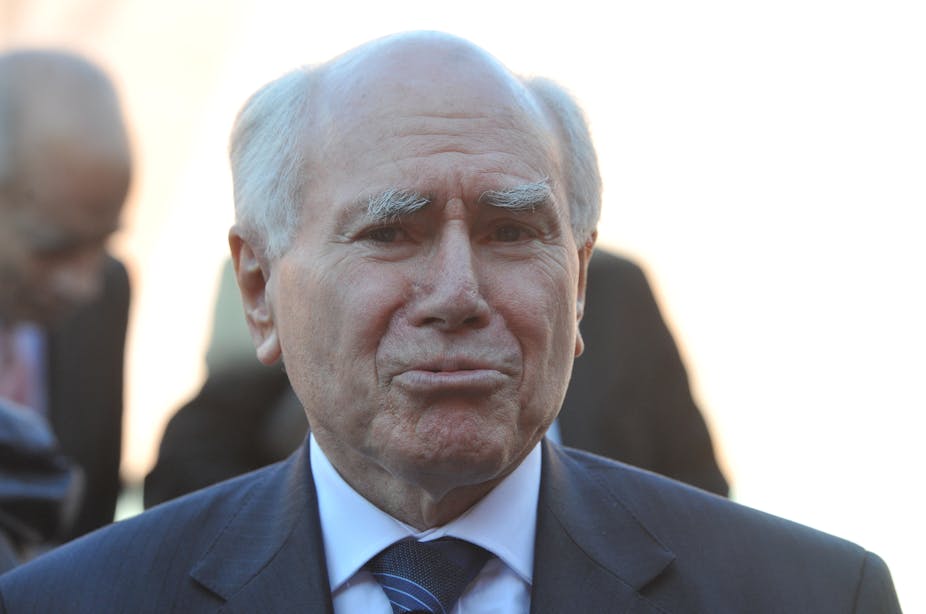There is a great deal of derogatory, evidence-free and ill-informed opinion about how history is taught in Australian schools. But these tired arguments are so often repeated that we can actually put them into three broad categories.
The first calls back to the good old days (often the 1950s) when real history was taught, not this fancy stuff the students learn today. The second argument is often prefaced by “My child came home from school today and told me…”; a proposition would then follow about how one child’s experience was somehow representative of how three million students are taught without the commentator having read the curriculum document or any understanding of how a curriculum works in practice. And the third reproaches curriculum designers for what they have “left out” – followed by a list of the commentator’s top twenty history hits.
But former Prime Minister John Howard in his inaugural Hasluck lecture in Perth late last week has managed to hit the trifecta of historical misunderstanding. First, he referred to his school days in the 1950s. Second, on the face of it, he had neither read the curriculum document properly nor understood how it might work in the classroom. Third, he mistakenly grumbled that the new national history curriculum did not include his favourite bits.
‘Left out’ history
John Howard’s serious error in all this lies in his mistaken position that Australia’s British imperial past has been left out of the national curriculum, that the celebratory aspect of Australian history is not there, that the triumphs of Western liberal democratic and Judeo-Christian traditions have been left out and that the genius of our parliamentary and legal systems is underplayed.
This proposition provokes two responses. First, the study of history even at school level is not just about celebration nor is it just about commemoration. It is fundamentally about investigation and explanation. Commemoration and celebration are invariably individual, community and national responses to the past.
Some of these responses are dignified and others are less so and they are the consequence of feelings and sentiments regarding how we observe the past. As such, they are open to classroom investigation and analysis.
Second, it is not the case that those aspects of the past that Howard holds in high esteem have been left out of the curriculum. As the Australian Curriculum, Assessment and Reporting Authority (ACARA) itself pointed out last Friday in a precise, nine-point press release, largely buried during a weekend focused on football, all of John Howard’s points, and more, are dealt with in detail in the current curriculum document.
Commemorations, celebrations, Australia’s colonial and post-colonial past, origins of democracy, our systems of law and government, the Judeo-Christian tradition - they are all there.
Historical misconceptions
So which curriculum document did Howard actually read? Clearly it was not the latest ACARA version. And is this error-strewn version of events (shared, as it happens, by Tony Abbott and Christopher Pyne) going to be the basis of a future Coalition approach to history in the national curriculum?
What is clear to me is this: conservative politicians have a tradition of taking a diligent interest in school history because they see the Australian present as a consequence of a slowly moving, progressive series of events that have involved complex shifts and alterations in the political, social and economic balance. These reforms, they believe, have generally been the consequence of pragmatic good sense resisting radical change, and this is a perfectly legitimate point of view.
Conservatives who would like to own and promulgate this past see themselves therefore as anxious guardians of a benign narrative that can easily be threatened by leftist indoctrination at the school level. Labor politicians, on the other hand, generally show little or no anxiety about history because, to paraphrase English academic Terry Eagleton, the left, in a smug way, actually believes that it does own the past.
What next?
I have four concluding pleas. If conservative politicians and commentators care about history in schools so very much, can they do their homework properly? Can they also trust the teachers’ professionalism in presenting history as a broad investigatory process with many areas of contention, and not as mere brainwashing from either right or left?
Finally, can they rely on our students to make up their own minds when it comes to examining the past?
As for Labor, can they please develop a little more concern about whether or not the national history curriculum will survive in school systems where it has largely been neglected for over thirty years?

